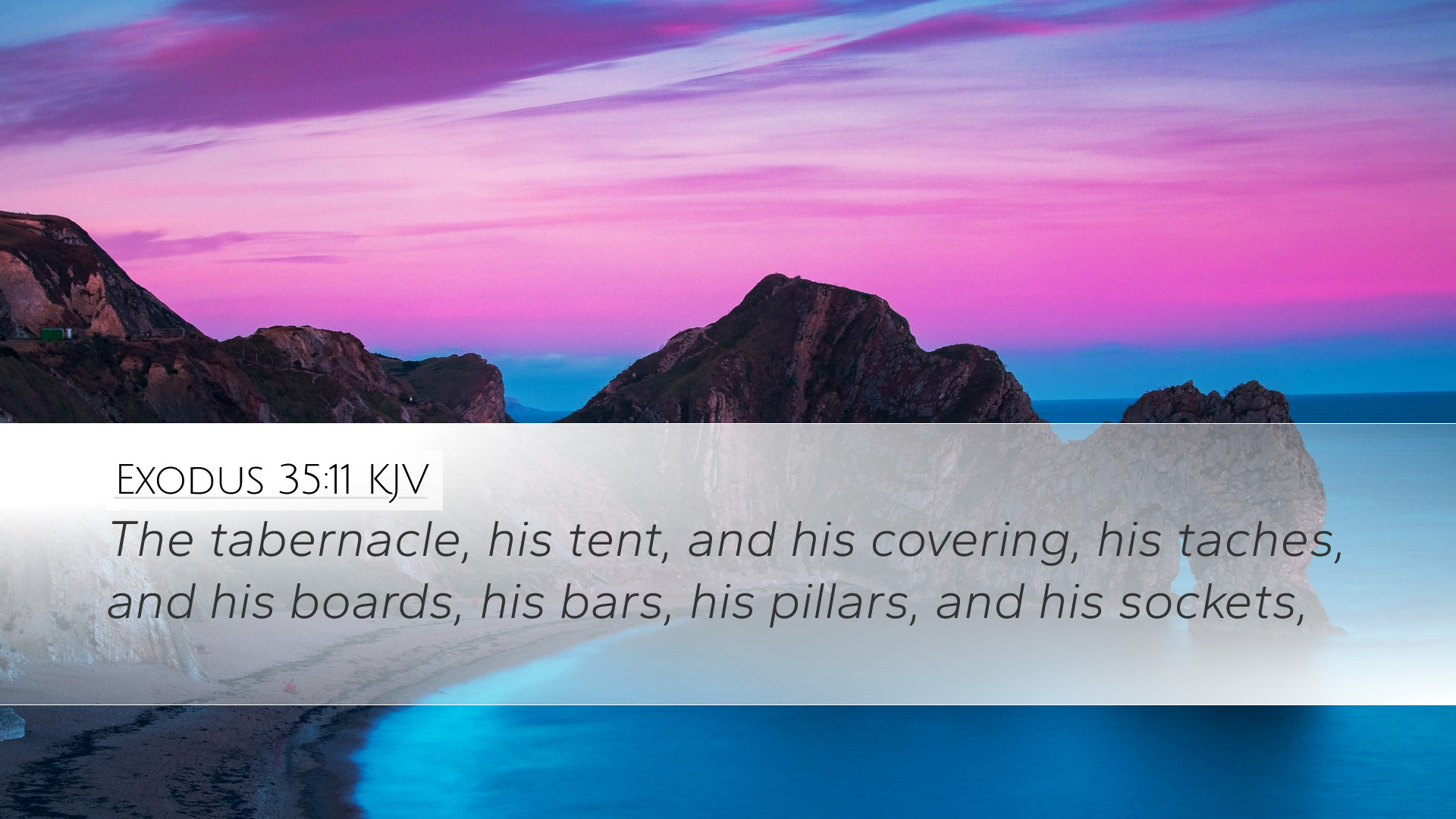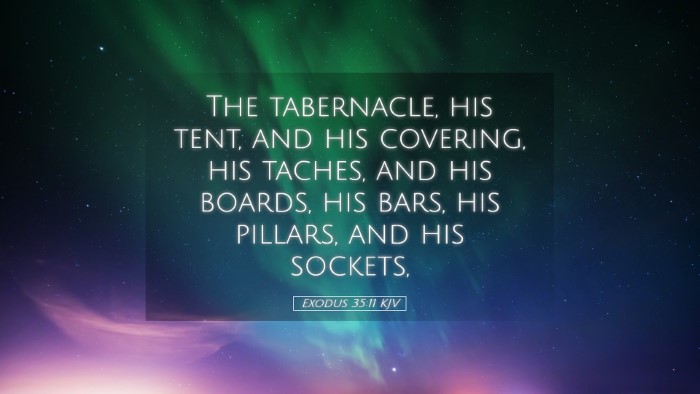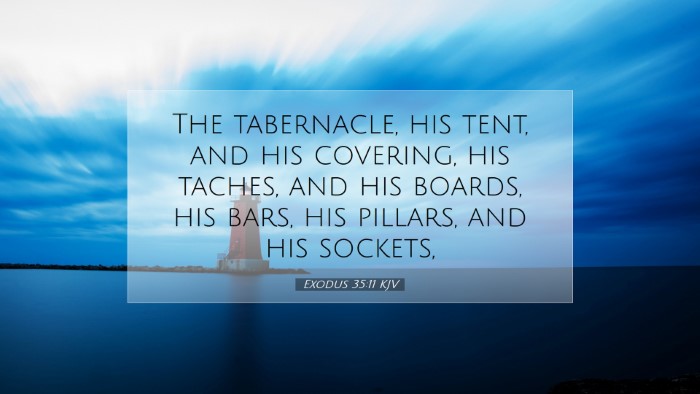Commentary on Exodus 35:11
Verse: "The tabernacle, its tent, and its covering, its hooks, its boards, its bars, its pillars, and its sockets."
Introduction
Exodus 35:11 is a part of God's instructions to the Israelites regarding the construction of the Tabernacle, which served as a focal point for worship and a visible manifestation of God's presence among His people. This verse lists various components that were crucial for building the Tabernacle, representing not only physical items but also spiritual truths that are foundational for understanding God's presence within the community of faith.
Matthew Henry’s Perspective
Matthew Henry emphasizes the divine order and structure behind the construction of the Tabernacle. He notes that the detailed instructions reflect God's desire for His dwelling place to be made with intentionality and precision. Each component mentioned in the verse — the tent, covering, hooks, boards, bars, pillars, and sockets — symbolizes aspects of the relationship between God and His people.
-
Divine Presence: The Tabernacle was not merely a tent; it was the location of God's glory. Each part was essential for creating a space where God could meet His people.
-
Symbolism of Structure: The outward beauty and intricate design point to the importance of inner holiness and order within the community of believers.
Albert Barnes’ Insights
Albert Barnes also expands on the significance of each element mentioned in Exodus 35:11. He discusses how the materials used were indicative of the value and sanctity of the house of God.
-
Tipi for Holy Worship: The Tabernacle, with all its components, was a mobile sanctuary designed during Israel's wilderness journey, demonstrating God’s readiness to dwell amongst His people.
-
Materials Reflecting Importance: The use of high-quality materials symbolizes the reverence and honor due to God. It teaches that worship should never be done carelessly but with the best of our resources.
Adam Clarke’s Commentary
Adam Clarke provides a detailed examination of the structural aspects of the Tabernacle, stressing its functionality as a sacred space. His observations point to practical reasons for each material listed in Exodus 35:11.
-
Construction Details: Clarke outlines how each piece, from the hooks that secured the coverings to the pillars that provided support, played a vital role in maintaining the integrity of the Tabernacle’s structure.
-
Spiritual Application: He connects the physical construction with spiritual truths, suggesting that just as each item supports the Tabernacle, each member of the church plays a role in supporting the body of Christ.
Theological Implications
This passage highlights several key theological themes that are pertinent for pastors, students, theologians, and scholars:
-
The Nature of God's Presence: The construction of the Tabernacle signifies God's desire to dwell among His people, indicating a relational aspect of worship that transcends mere rituals.
-
Community and Contribution: The building of the Tabernacle required contributions from the entire community (as noted in the surrounding verses). This reflects the communal nature of faith, where each member has a part to play in the worship and functioning of the church.
-
Order in Worship: The specificity of the instructions highlights a God who values order, implying that the approach to worship should be marked by reverence, holiness, and dignity.
Conclusion
Exodus 35:11 serves as a rich source of reflection on the nature of God, the community’s role in worship, and the theology of place in religious life. The insights provided by Matthew Henry, Albert Barnes, and Adam Clarke underline the importance of both the physical and spiritual realities present in the worship of God. For pastors, students, and theologians, this passage encourages a deeper appreciation of the elements involved in worship and the necessity of providing God with our best as a reflection of His worthiness.


